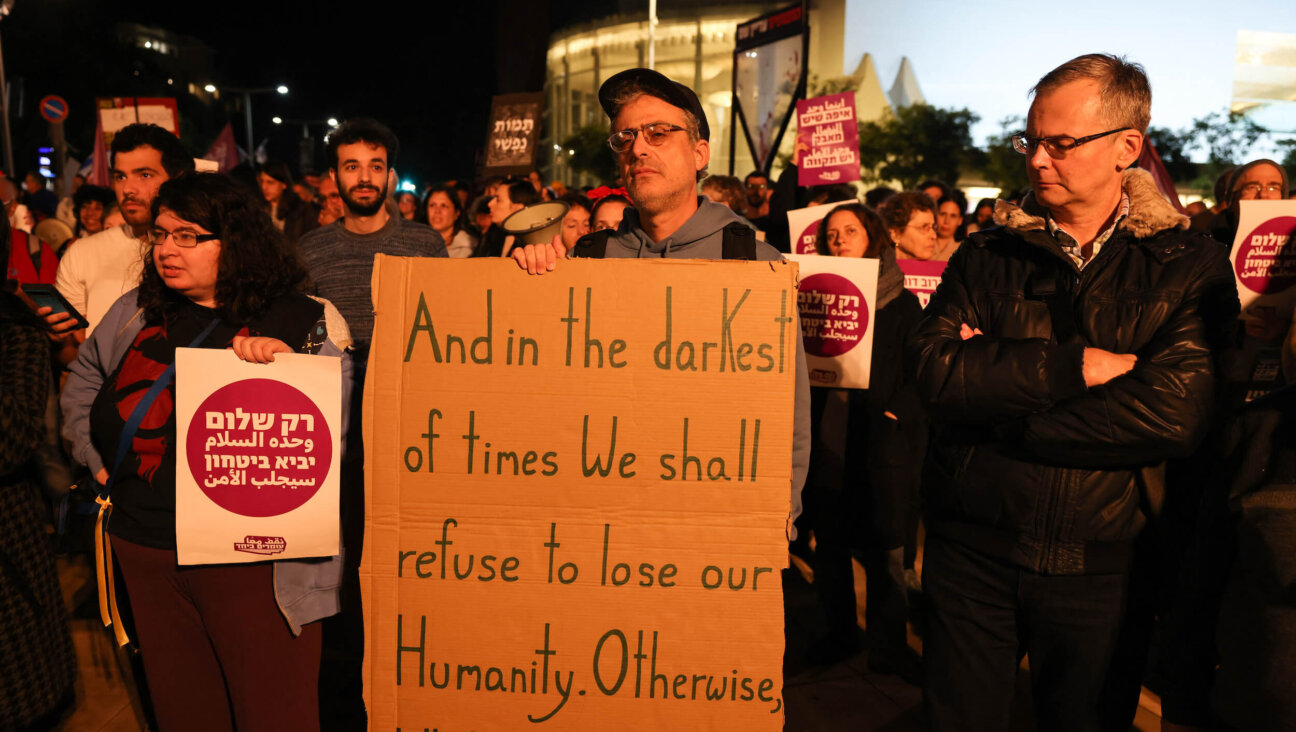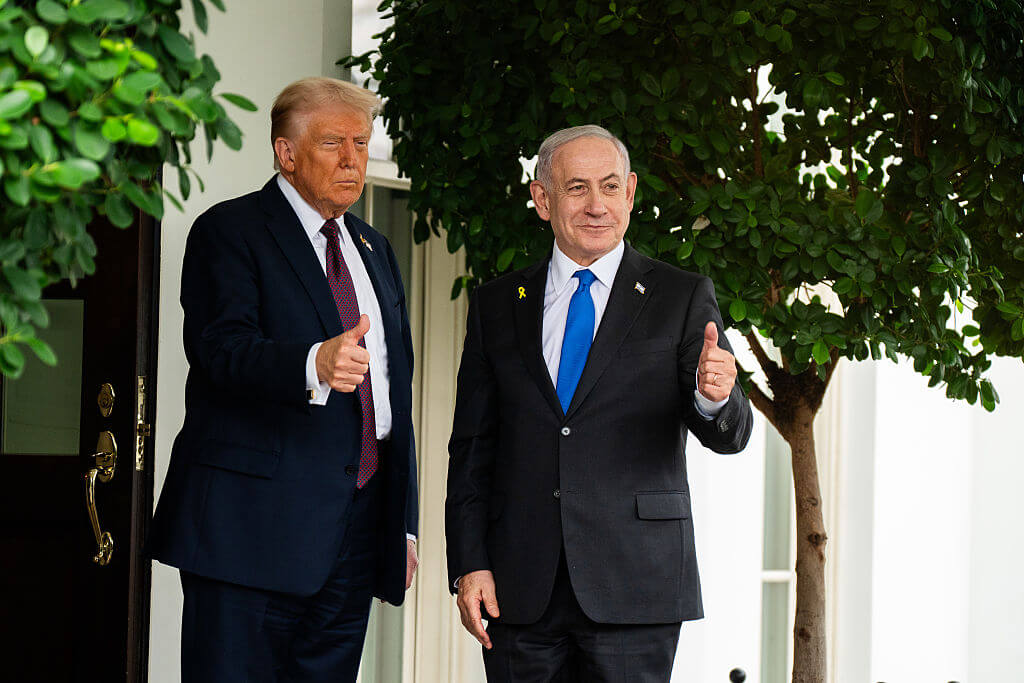Iran Scores Breakthrough Meeting With Lawmakers as Diplomatic Thaw Builds

Icebreaker: Iran Foreign Minister Javad Zarif met with a group of Congressional leaders this weekend. Image by getty images
Israel and the American Israel Public Affairs Committee are not alone in seeking to influence Congress’s response to the Obama administration’s unprecedented diplomatic engagement with Iran. On Sunday, Iranian Foreign Minister Mohammad Javad Zarif met with a delegation of Congress members from both parties for three hours at the home of Iran’s UN Ambassador.
“There were a lot of members present,” said Marshall Breger, a former senior official in the administrations of Presidents Ronald Reagan and George H.W. Bush, who was there. “And they included people normally considered hawkish.”
Breger declined to divulge how many members attended the meeting or their identities. The decision was made, he said, to let each attendee decide what to say — if anything — about his or her own attendance. But he recounted that “the meeting was positive.”
A call to Iran’s UN mission seeking further information about the meeting was not returned.
Zarif’s meeting with the Congress members comes as AIPAC is supporting legislation that would broaden existing economic and commercial sanctions against Iran unless it dismantles its nuclear program. The United States, Israel and other Western countries maintain the program’s aim is to develop nuclear weapons, but Iran denies this.
In a Washington Post opinion piece published on Friday, Democratic Senator Robert Menendez of New Jersey and Republican Senator Lindsey Graham of South Carolina dismissed the import of Iranian President Hassan Rouhani’s recent appearance before the UN, his groundbreaking phone call with President Obama and an accompanying initial meeting between Zarif and foreign ministers from countries charged with negotiating a resolution to the bitter dispute.
In a press conference on Friday, Rouhani was upbeat about the foreign ministers’ initial discussion, describing them as “completely different from those in the past.”
But in their opinion piece, Menendez and Graham wrote, “We will be outspoken in our support for furthering sanctions against Iran, requiring countries to again reduce their purchases of Iranian petroleum and imposing further prohibitions on strategic sectors of the Iranian economy.” The House passed a bill last July along the same lines.
Critics of the legislation warn that responding to Iran’s diplomatic opening with legislative threats at this juncture will merely poison the chances of achieving a diplomatic resolution as the talks begin. During their visit to New York, Rouhani and Zarif said they would be offering unspecified moves in those talks to increase international access to Iran’s nuclear operations to boost confidence that they are not being used to develop nuclear weapons. In exchange Iran will be seeking a lifting of international sanctions. The talks will resume in Geneva on October 15.
















